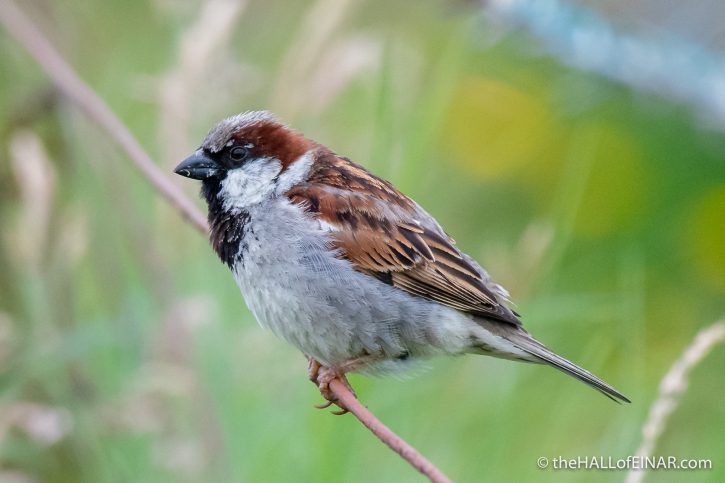Respiratory choreography
Air pollution because of road traffic is something which affects us all. Some people suffer particularly badly. Air pollution kills 7 million people worldwide every year according to the World Health Organisation. Air pollution kills 28,000 to 36,000 people a year in the UK, according to King’s College, London, in a report published by the UK Government. It’s something which hasn’t been taken into account enough when building new roads. When road-building supporters suggest a new road will quicken your journey time, they don’t realise that for many, that journey is to the grave.
Just imagine what air pollution does to birds, which have a far faster respiration rate.
House Sparrows are the only birds which I remember in my garden as a small child. They were always a thrill to see. I see them very rarely now.
According to the RSPB:
“House sparrow numbers were not monitored adequately before the mid-1970s. Since then, numbers in rural England have nearly halved while numbers in towns and cities have declined by 60 per cent. Because of these large population declines, the house sparrow is now red-listed as a species of high conservation concern.”
The world’s going to hell in a two litre turbo-diesel if House Sparrows are endangered. House Sparrows in a city are our canary in a coal-mine.
In the countryside it’s changing agriculture which has led to their decline. There’s far less stubble in winter, as land is covered in winter wheat, and farmers have improved their ‘hygiene’ in storing grain. What about in urban areas? What has led to their decline in town and cities? Could air pollution be a contributing factor?
Birds have a major anatomical difference from mammals like us. People have a two-way, fresh air system of breathing, where we always have a residue of stale air left in our lungs. Birds are different. Whenever a bird breathes in or out, fresh air moves the same way through the lungs. Breathe in and air moves one way. Breathe out and the air moves the same way. It’s because birds have air sacks which store air and then act like bellows to blow air through the lungs. The air sacks open and close in a beautiful biological ballet, co-ordinated to perfection by natural selection, the world’s best choreographer.
I say ‘fresh air’, but in towns and cities I should really say ‘foul air’. Anyone who runs or cycles in a town or city knows how foul it is to have to breathe deeply in polluted air. What must it be like to breathe when you’re exerting yourself enough to fly?

As long as this House Sparrow doesn’t follow that ‘Island car’, a diesel which hasn’t had an MOT, then it should get plenty of fresh air here on Westray. And so should I.